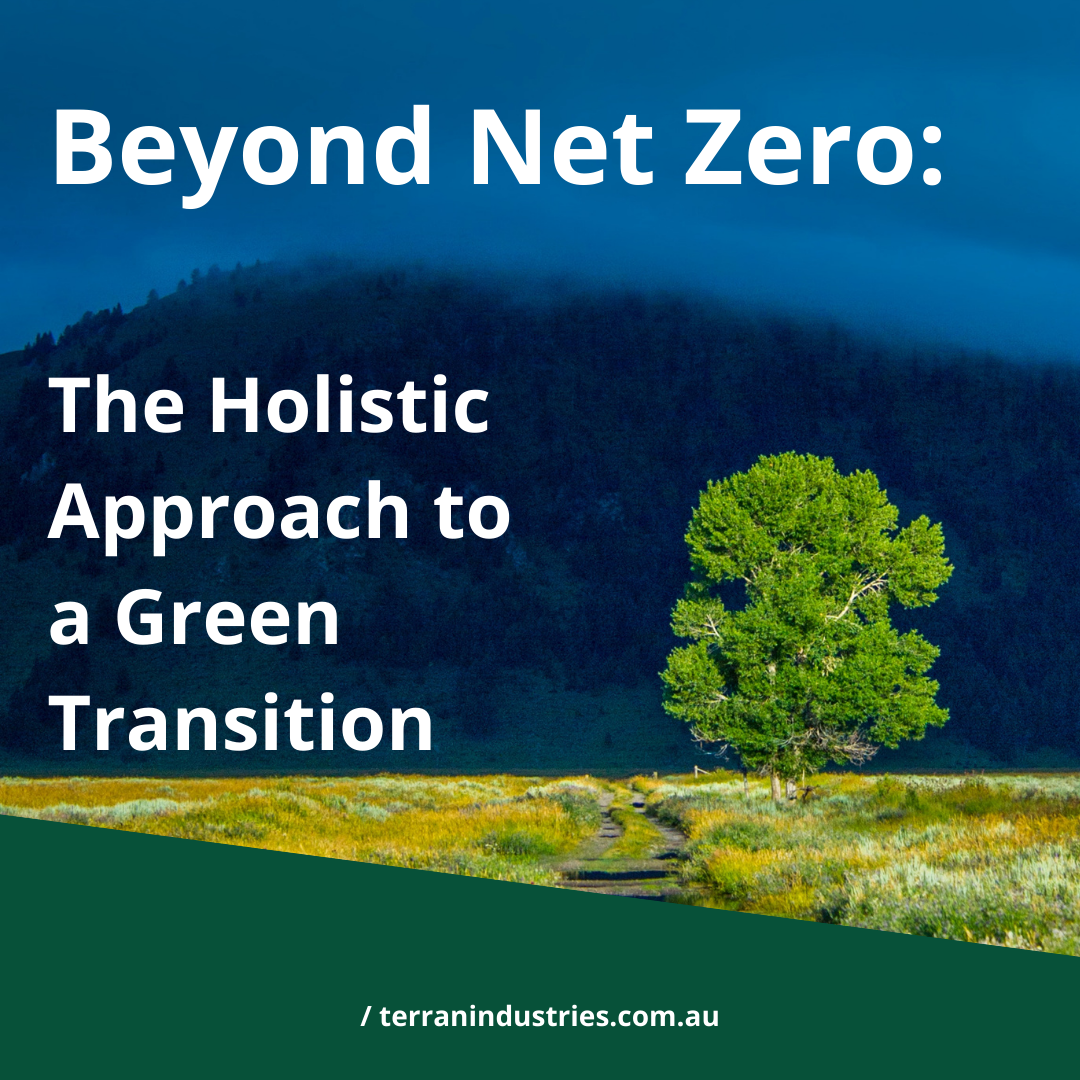Circular EconomyClimate ChangeEnvironmentGreen EnergyInnovationSustainabilityBeyond Net Zero: The Holistic Approach to a Green Transition

The urgency of the climate crisis calls for immediate and decisive action. While the concept of achieving net zero emissions has gained significant attention, it alone cannot solve the complex challenges we face.
The green transition requires a holistic view that encompasses various aspects, including a circular economy, human action, technology, implementation, mitigation, and adaptation.
In this article, we will explore the key elements necessary for a successful transition and emphasise the importance of taking a comprehensive approach.
"While net zero emissions is crucial, it is not sufficient to tackle the climate crisis"
1. Beyond Net Zero: The Role of a Circular Economy
While striving for net zero emissions is crucial, it is not sufficient to tackle the climate crisis comprehensively. A circular economy, which focuses on minimising waste and maximizing resource efficiency, is an essential component.
By reusing, recycling, and regenerating materials and resources, we can reduce our carbon footprint and create a sustainable future. Embracing circular practices across industries and sectors is vital to achieving long-term environmental goals.
"A circular economy, which focuses on minimising waste and maximizing resource efficiency"
2. Climate Tech: An Essential Solution, But Not the Entire Answer
Climate technology and green innovations offer promising solutions for reducing emissions and promoting sustainability. However, relying solely on technological advancements without addressing underlying systemic issues will not solve the problem.
While climate tech products play a crucial role, they should be seen as tools to support larger societal and systemic transformations. We must recognise the importance of changing behaviors, policies, and infrastructure to facilitate a successful green transition.
"We must change behaviors, policies, and infrastructure for a successful green transition"
3. Balancing Technology with Human Action
While technology plays a vital role in driving environmental progress, it is ultimately human action that creates meaningful change. We cannot rely solely on innovation to save us from the climate crisis. Individual choices, collective efforts, and political will are equally important.
By adopting sustainable practices in our daily lives, demanding change from policymakers, and actively participating in environmental initiatives, we become agents of transformation.
4. Implementation and Mitigation: Driving Forces for Transition
Implementing sustainable solutions and strategies is a critical aspect of the green transition. We must prioritise the execution of green initiatives, such as renewable energy projects, sustainable transportation systems, and energy-efficient infrastructure. Simultaneously, we need to focus on mitigating the environmental impacts of existing industries and practices.
By actively reducing emissions, promoting sustainable alternatives, and embracing eco-friendly practices, we can accelerate the transition to a greener future.
5. Adaptation: A Crucial Element
While mitigation and implementation are necessary, we must also prepare for the unavoidable consequences of climate change through adaptation measures. As extreme weather events become more frequent, we need to enhance our resilience and adapt to a changing environment.
This includes developing infrastructure that can withstand climate-related challenges, implementing nature-based solutions, and supporting vulnerable communities in adapting to new conditions.
6. The Pitfalls of Offsetting and Carbon Markets
Offsetting, carbon markets, and similar mechanisms have been proposed as potential solutions to reduce emissions. However, they should only be viewed as a last resort and temporary measures until better alternatives are developed.
"Offsetting & Carbon Markets are only temporary measures until better alternatives are developed."
Relying solely on offsetting can lead to complacency and a lack of genuine emission reductions. Instead, we should prioritise systemic changes and sustainable practices that address the root causes of emissions.
"Genuine emissions reductions will only be achieved through systemic changes & sustainable practices that address the root causes of emissions."
Conclusion
To implement a successful green transition, we must adopt a holistic view that goes beyond net zero targets. Embracing a circular economy, recognising the limitations of technology, prioritising human action, driving implementation and mitigation efforts, and preparing for adaptation are key components of this transformative journey.
While offsetting and carbon markets have their place, they should be utilized sparingly and in conjunction with long-term, sustainable solutions.
By taking decisive action today, we can shape a future that is not only environmentally sustainable but also socially just and economically prosperous for generations to come.

Evannah Jayne
Founder & CEO
A passion for sustainability and a desire to change the world, Evannah seeks to raise awareness of the important issues surrounding our planet today.
